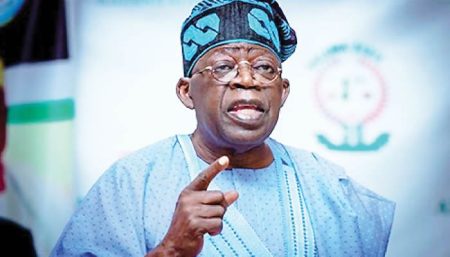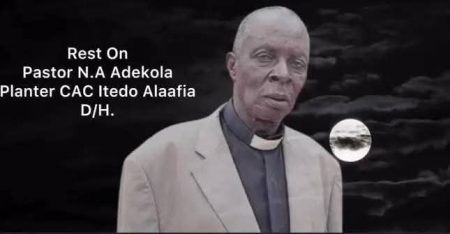Paragraph 1: The Core Dispute and Legal Maneuvering
The heart of this legal battle lies in the Osun State Government’s claim that the Federal Government, through the Ministry of Finance, withheld statutory allocations due to its 30 local government councils for March 2025. Osun State, represented by its Attorney General, initiated a lawsuit against the Attorney General of the Federation (AGF), Lateef Fagbemi, seeking the release of these funds. The state government alleged that the Minister of Finance, Wale Odun, claimed to be acting on the AGF’s instructions when withholding the allocations. However, the AGF vehemently denied this accusation, challenging the very basis of Osun’s lawsuit and accusing the state government of contempt of a prior Supreme Court judgment. This sets the stage for a complex legal confrontation, centering on the control and disbursement of local government funds.
Paragraph 2: The AGF’s Counter-Narrative and Accusations of Contempt
The AGF, through his counsel, Chief Akin Olujimi, SAN, presented a counter-narrative, supported by an affidavit from a presidential aide, Taye Oloyede. Oloyede testified that the Minister of Finance explicitly denied receiving any instructions from the AGF to withhold Osun’s local government allocations. The AGF further argued that Osun State failed to demonstrate that the President had ordered the withholding of funds or that there was any deliberate attempt to deprive the local governments of their due allocations. Crucially, the AGF emphasized a prior Supreme Court ruling that mandates direct payment of allocations to local governments, requiring only the submission of account details to the Ministry of Finance. He asserted that Osun had not proven that its local governments had fulfilled this requirement. This argument forms the core of the AGF’s defense and pivots towards his accusation of contempt against the Osun State Government.
Paragraph 3: The AGF’s Accusation of Contempt and Demand for Repayment
The AGF’s central accusation revolves around Osun State’s alleged disregard for a July 11, 2024, Supreme Court judgment in the case of AGF v. Attorney General of Abia State & Others. This ruling explicitly forbade state governments from collecting or disbursing local government funds, mandating direct payment to the councils. The AGF argued that Osun State, despite being a party to this case, continued to receive and utilize local government funds between July 2024 and February 2025, directly contravening the Supreme Court order. He characterized Osun’s lawsuit as a calculated attempt to secure judicial approval for its ongoing violation of the court’s ruling, labeling it “egregious contempt.” Demanding accountability, the AGF requested the Supreme Court to compel Osun State to repay all local government funds collected during the period of alleged violation, to be subsequently disbursed directly to the respective local governments.
Paragraph 4: Osun’s Justification and the AGF’s Rebuttal
Osun State sought to justify its actions by citing a 2004 Supreme Court case involving Lagos State, where withheld funds were ordered to be released. However, the AGF argued that this precedent was inapplicable to the current situation, given the subsequent 2024 ruling that explicitly changed the procedure for disbursing local government allocations. He underscored that Osun State’s purported intention to use the funds for state-level health and education initiatives directly contradicted the Supreme Court’s prohibition against state management of local government finances. Furthermore, the AGF pointed to the overturning of a previous Federal High Court ruling in favor of the Osun State Governor by the Court of Appeal, further weakening Osun’s legal standing. The AGF maintained that Osun had wrongly positioned itself as a “watchdog” over local government funds, lacking the legal authority to litigate on their behalf.
Paragraph 5: Preliminary Objections and the Principle of Locus Standi
The AGF raised a series of preliminary objections to Osun State’s lawsuit, arguing that the state lacked the legal standing (locus standi) to bring the case. He emphasized that only the local governments themselves, not the state government, possess the right to seek redress for unpaid allocations. He further argued that Osun’s alleged contempt of a prior Supreme Court ruling disqualified them from being heard and that the case did not present a genuine dispute warranting the Supreme Court’s original jurisdiction. The AGF also contended that Osun had no right of appeal against the Supreme Court’s decision in the Abia State case. These objections aimed to dismantle the foundation of Osun’s legal challenge and reinforce the principle of direct control over local government finances.
Paragraph 6: Withdrawal of the Suit and Remaining Legal Procedures
Despite the ongoing legal arguments and the AGF’s forceful counterclaims, it was reported that the Osun State Government had withdrawn its lawsuit. However, the AGF’s counsel confirmed that the case technically remained active until the formal withdrawal application was heard and approved by the Supreme Court in September. This procedural step underscores the formal nature of legal proceedings and highlights that, despite the withdrawal, the legal issues raised, particularly concerning the control and disbursement of local government funds, remain relevant and potentially subject to further legal interpretation in the future.














